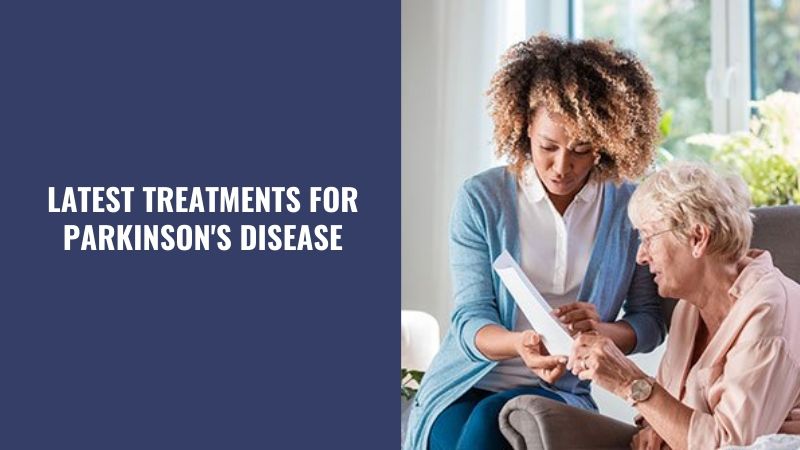Parkinson’s disease is still a mystery to medicine. Doctors do not have a clear answer to the question of why it develops and how to treat it. The search for effective medications is ongoing. 20-30 years ago this diagnosis was a verdict, but today it is fundamentally possible to extend the active life of patients with Parkinson’s disease.
Parkinson’s disease: treatment for the incurable illness?
The disease indicated in the title refers to degenerative neurological diseases in which neurons are destroyed and the synthesis of dopamine, one of the most important neurotransmitters, is reduced. The disease develops slowly but inevitably. It all starts with almost imperceptible symptoms – loss of smell, sweating, decreased mood, difficulty in defecation. Most patients do not pay attention to this until one of the most characteristic signs of Parkinson’s disease is manifested – slowness and stiffness of movements. As the disease develops, the stiffness of the movements increases, muscle tension develops (hypertonicity, the muscles become rigid). One-sided small-amplitude trembling of the fingers and hands can occur, which subsequently spreads to the other side of the body. At later stages, a person loses the ability to maintain balance and move independently, thinking slows down, deep apathy and depression develop.
There are no medicines that can completely stop the. Modern therapy is aimed at alleviating the patient’s condition and slowing down the development of the disease.
Medications
The selection of medications for the treatment of Parkinson’s disease depends on the stage of the disease. Waldwick Canadian Pharmacy, en expert of medicines for Parkinson’s disease, commented on the pharmaceutical options: “At the very beginning of the disease development, doctors prescribe drugs that stimulate the synthesis of dopamine – a neurotransmitter, the amount of which decreases with Parkinsonism. They also prescribe drugs that stop the breakdown of this neurotransmitter, prevent its reuptake, and stimulate the corresponding receptors in the brain. These remedies are very similar to antidepressants. In the early stages of the disease, patients receive dopamine receptor agonists based on the active substances pramipexole, ropinirol, pyribedil, rotigotine, as well as MAO type B inhibitors (the active substance is rasagiline) and the activator of the release of dopamine from the neuronal depot – amantadine. In the third of the five stages of the disease, they use a drug with the active substance levodopa. If the disease debuted at the age of over 70, then levodopa is usually prescribed immediately.”
Are there any non-drug treatments for Parkinson’s disease?
Modern complex treatment of Parkinson’s disease includes non-drug therapy.
Neurosurgical approach – deep brain stimulation
This radical approach to treating Parkinson’s disease involves stereotactically introducing electrodes into well-defined brain structures. When applying electrical impulses with a certain frequency and intensity, motor disturbances in Parkinson’s disease, especially tremor, are significantly reduced. Basically, the neurosurgical approach is indicated to patients resistant to drug therapy. With this relatively minimally invasive (for neurosurgery) operation, some subcortical brain structures are destroyed. This is one of the most effective surgical treatments for Parkinson’s disease.
Rehabilitation
It is aimed at restoring normal muscle tone. Dostors usually prescribed balneotherapy, electrical stimulation, reflexotherapy, electrophoresis. At any stage of Parkinson’s disease, exercise therapy is needed to help maintain good coordination and plasticity: stretching exercises, maintaining balance, cardio training. Movement therapy helps patients to adapt to changes that occur with the body, to develop the right algorithms for movement, because the old ones cease to be effective as the disease develops.
Rehabilitation measures are aimed at lowering anxiety levels, improving mood and combating the manifestations of depression. All these signs are very characteristic of this disease.
Psychotherapy
There is no doubt that Parkinson’s disease significantly changes a person’s life. Dealing with and accepting these changes is very difficult. Often patients need the help of a psychotherapist. Only working with a good specialist will help overcome depression. Maintaining good spirits is one of the first priority tasks facing a patient with such a diagnosis. Doctors have long noticed that the success of treatment largely depends on the patient’s mood.
General recommendations
People with Parkinson’s disease will have to reconsider their entire lifestyle. For example, you need to pay special attention to diet. Digestion with this disease suffers significantly, patients often complain of constipation. To avoid this, it is necessary to include as many fiber-rich foods as possible — vegetables and fruits, brown rice, bran bread, and beans. We must not forget about proteins – best in the form of lean meat and fish, as well as eggs. Vitamins are required for normal metabolism, taking vitamins C and E is especially important. Drink as much water as possible since dehydration with Parkinson’s disease is a common occurrence.
The regimen of taking prescribed drugs is also important. They must be taken exactly in accordance with the recommendation of a doctor.
New in the treatment of Parkinson’s disease
European specialists conduct studies in the areas of soft pulsed electrical stimulation of neurons and gene therapy. But as long as the causes of Parkinson’s disease remain unclear, no means will be found to cure it completely. Currently available treatment helps to improve the quality of life and delay the development of the disease, so that patients who have recently been diagnosed with this diagnosis have every chance of maintaining the ability to self-care for many years.
Parkinson’s disease is one of the most serious ailments of the elderly. But professional care can facilitate its manifestations and improve the general well-being of the patient. This can be provided by modern geriatric centers.
